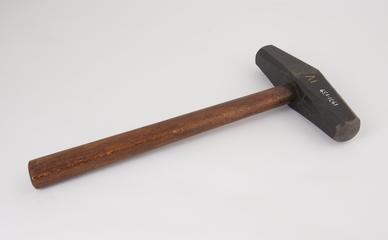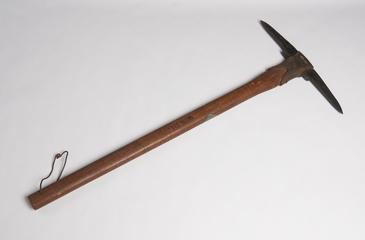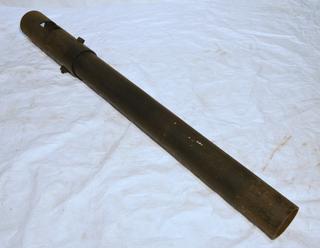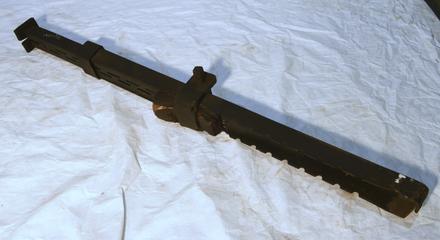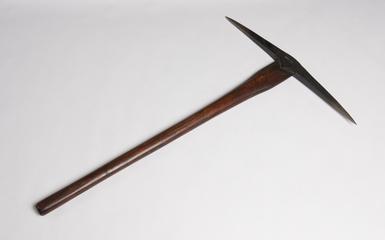
Safety lamp
- PART OF:
- Collection of safety lamps.
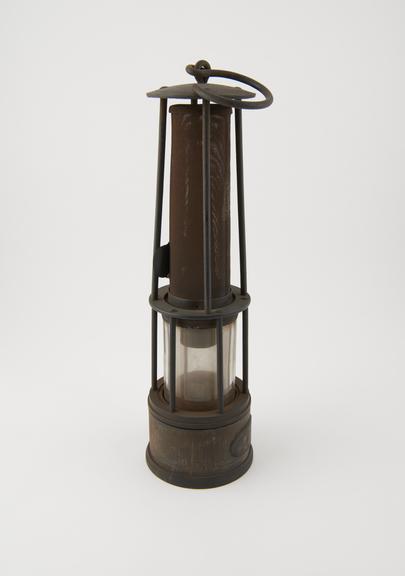
Safety lamp, Mueseler no.32, Somzee's gas detecting device, use: gas detecting, from the Royal Commission on Accidents in Mines, 1886, marking: Lampe avertissante du Grisou Systeme Somzee, 1883
This miner’s lamp is one of a collection of over two hundred lamps examined by the Royal Commission on Accidents in Mines, 1879-1886. Mining has always been a dangerous occupation – In Britain, up to 1800 miners died in accidents every year. The Commission sought to prevent accidents from happening, and to limit their consequences. Miners need light to work, but often lamps caused devastating explosions when the flames within came into contact with gases such as methane present in the atmosphere.
The Commission emphasised the insecurity of the older Davy and Stephenson-type lamps, which were still used in many mines. Unless enclosed in a tall glass shield or case, the faster ventilating currents being used underground meant their internal flame could contact the atmosphere outside, potentially causing an explosion.
The Commission experimented with over 250 lamps, and many types failed to give security in explosive air currents of over 1,000 ft. per min. velocity. Even in the safe lamps, however, the ultimate source of danger— the breaking of the glass - was always present. Moreover many of these lamps either produced little light or were too easily extinguished by movement of the lamp. Others were too complicated for general mining use. The Commission identified which lamps should not remain in service, and which had the best record for safety, good illumination, and simplicity of construction.
Details
- Category:
- Mining & Ore Dressing
- Object Number:
- 1886-233/171
- type:
- safety lamps
- credit:
- Geological Museum (Jermyn St.)
